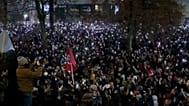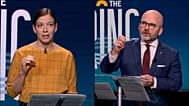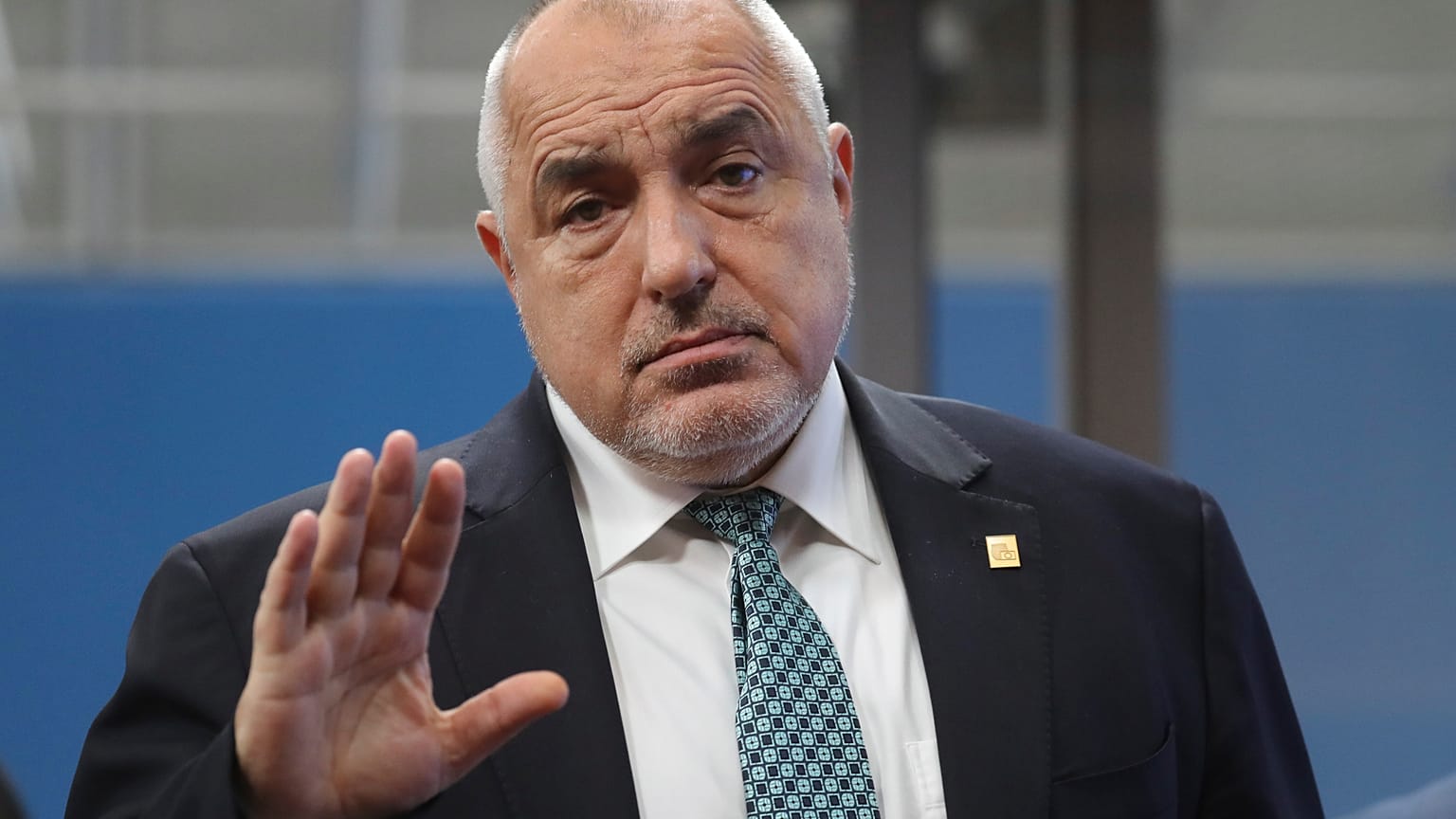The news that the three ministers had been fired was applauded by protesters, but thousands took to the streets of Sofia on Thursday to continue calling for the PM's resignation.
Thousands of protesters gathered in Bulgaria's capital Sofia for an eighth day on Thursday, calling for the resignation of the government.
Prime Minister Boyko Borissov sacked three of his most influential ministers on Wednesday in a bid to quell the protests.
Borissov's conservative GERB party announced in a statement that the prime minister had asked for the resignation of the finance, economy and interior ministers after talks within the party.
The news was applauded by thousands of protesters who had gathered in Sofia on Wednesday, but on Thursday more than 18,000 people were back on the streets calling for Borissov's own resignation.
Demonstrators, many of whom are younger people, blocked traffic in the city centre for hours, beating drums and waving flags to shouts of "we will be there every day" and "resign".
Protesters accuse Borissov and the country's top prosecutor, Ivan Geshev, of corruption, authoritarian rule and dependence on criminal groups and are calling for both men to step down.
The protests started after a small right-wing party said it had exposed government privileges and protections enjoyed by the former leader of the MRF Turkish minority party, Ahmed Dogan, a backer of Borissov, and his deputy — powerful businessman and pro-government media owner, Delyan Peevski.
GERB said on Wednesday that the party's regional coordinators insisted Borissov sack the three ministers to counter allegations they were directly dependent on Dogan and Peevski.
Protesters have also denounced raids by heavily armed police and prosecutors in the offices of two of President Rumen Radev's closest aides, who is backed by the opposition Socialists.
They view the raids as Borissov and Geshevan attacking the president, who has been highly critical of the prime minister's cabinet and its "links to oligarchs".
"The current oligarchic model of power is depleted and rejected by the people," Radev said on Wednesday while urging Borissov and his chief prosecutor to resign in order to resolve the crisis.
Borissov, 61, has so far refused to resign. He has been in power since 2009 with his current term scheduled to end in early 2021.
He will face a parliamentary vote of no-confidence brought forward by the Socialists next Wednesday but is widely expected to survive the vote.
Bulgaria is the most corrupt country in the European Union, according to watchdog Transparency International.
The NGO has placed the country last in a ranking of EU countries for seven consecutive years and flagged that there has been "no significant progress in fighting corruption in comparison with other countries from the EU" between 2012-2019.
"With little control over political party financing and few checks and balances, Bulgaria also lacks an independent and transparent media," it added.
It highlighted that "it is often unclear who owns media outlets" and what political connections they may have and that "many outlets are financially dependent on state advertising, which may colour their reporting and affect any criticism they may otherwise provide to government authorities."















